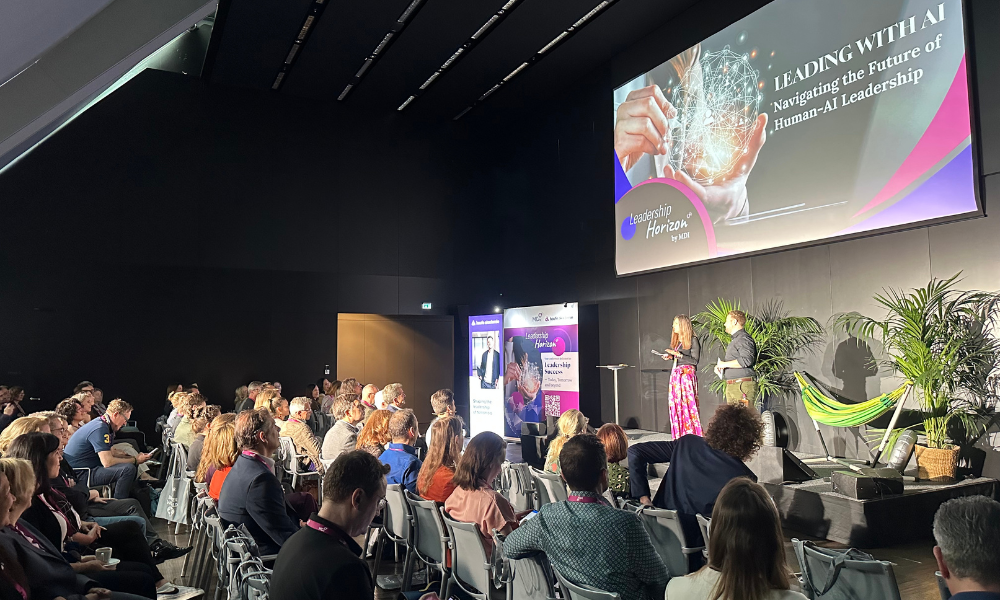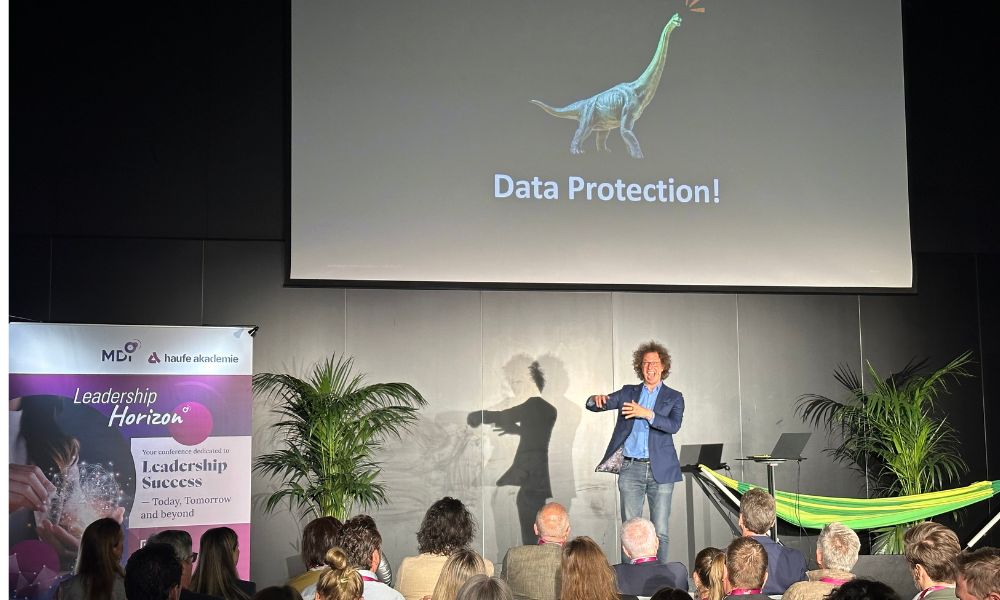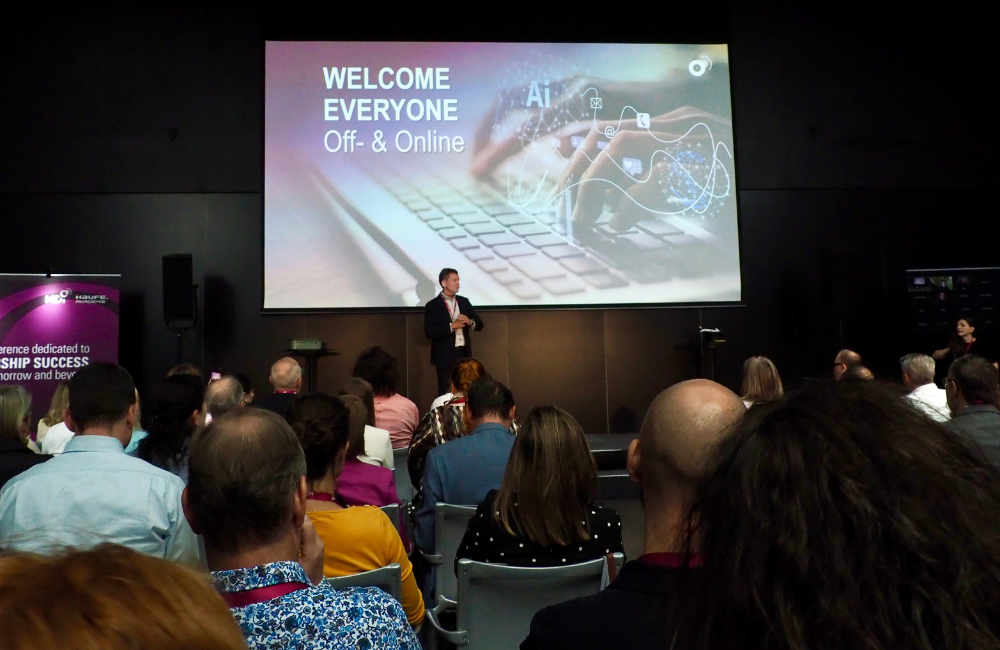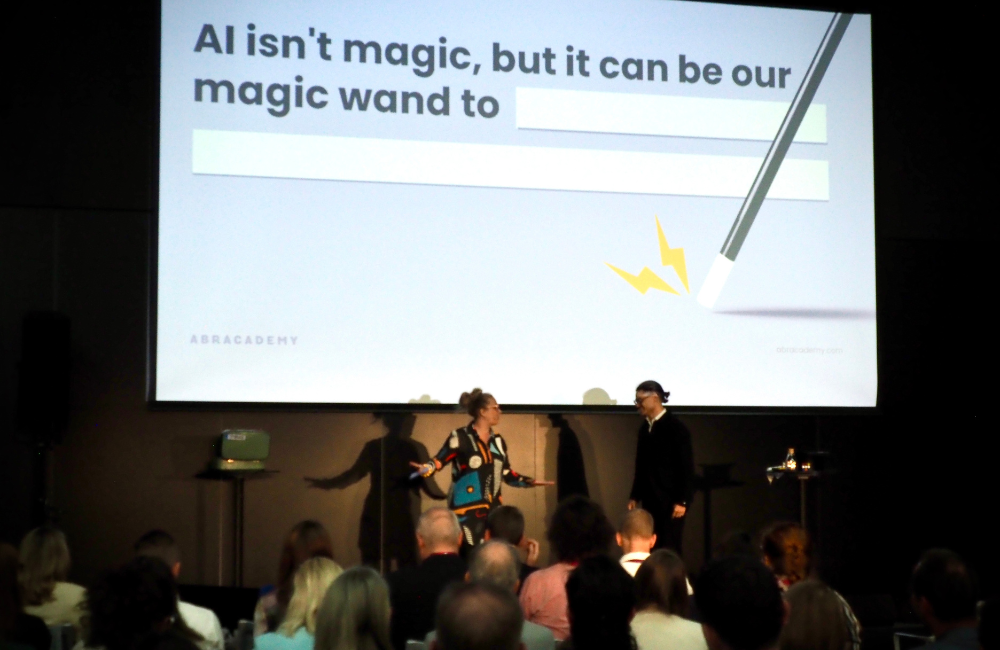
The Lasting Impact of Leadership Horizon – Meike’s Perspectives
The Lasting Impact of Leadership Horizon – Meike’s Perspectives
Do you prefer to listen to this article? Click below to access our AI-generated audio version!
The Lasting Impact of Leadership Horizon – Meike’s Perspectives
MDI’s Meike Hinnenberg shares her reflections on this year’s Leadership Horizon and what it means to be a leader in today’s climate. Read this blog article to gain insight into her perspectives!
The #Leadership Horizon took place over a month ago.
And yet – it still lingers in my mind.
In an age where the average attention span has dropped to just 47 seconds (down from 2.5 minutes in 2004, as #GloriaMark describes), that’s not nothing.
So why does this event stay with me?
Certainly because of the valuable insights into current developments in #AI. But more than that:
It was the multi-perspectivity and the rare, dialogical space between those perspectives that left a lasting impression.
This wasn’t a sales pitch. Nor an ideologically charged debate. It was a shared space to explore the tension between
- inspiration
- rapid development
- uncertainty
- and the sheer unpredictability of a technology that both fascinates and challenges us.
Leadership and Multiperspectivity
In today’s public discourse, I often miss this kind of space. Instead, I encounter ideological simplifications that seem to fuel polarization, reducing complex issues to binary narratives. This tendency not only falls short of doing justice to the complexity of our interconnected world but also obstructs meaningful responses and undermines the solidarity we so urgently need.
In contrast, spaces like the Leadership Horizon – where different perspectives are not just tolerated but invited – feel like rare and necessary counterexamples. This event inspired me on a deeper level, much like the writings of #KlausEidenschink on conflict, polarity, and the question of the good within the evil.
It reminded me that true dialogue does not seek harmony at any cost or resolution too quickly, but stays with the tension, holds the paradox, and allows transformation to unfold from within it.

A Core Leadership Competence
This ability to hold tension and to stay with complexity is not just useful – it’s essential for us as leaders, because in leadership, we constantly navigate ambiguity and contradiction.
And especially now – as we face various disruptions and questions around systemic transformation, diversity etc. – we don’t need more polarization. We need the ability to manage polarities. To lead across differences. To hold both clarity and contradiction.
I know from experience how easy it is to ask for this complexity tolerance – and how hard it is to practice it. Especially under pressure, our systems revert to simplification, control, and reactivity.
That’s why this is not just about mindset – but about #conscious leadership and about creating spaces of real dialogue, where perspectives can challenge and transform us and where we remain generous in our shared human finitude.
What helps you create those spaces in your organization – where not just alignment, but true dialogue can emerge?

Meike Hinnenberg
Learning & Development Consultant
Meike Hinnenberg is a trainer, Learning and Development Consultant, and Team Lead at MDI Management Development GmbH and specializes in communication, conflict management, diversity & inclusion, and lateral leadership.
















